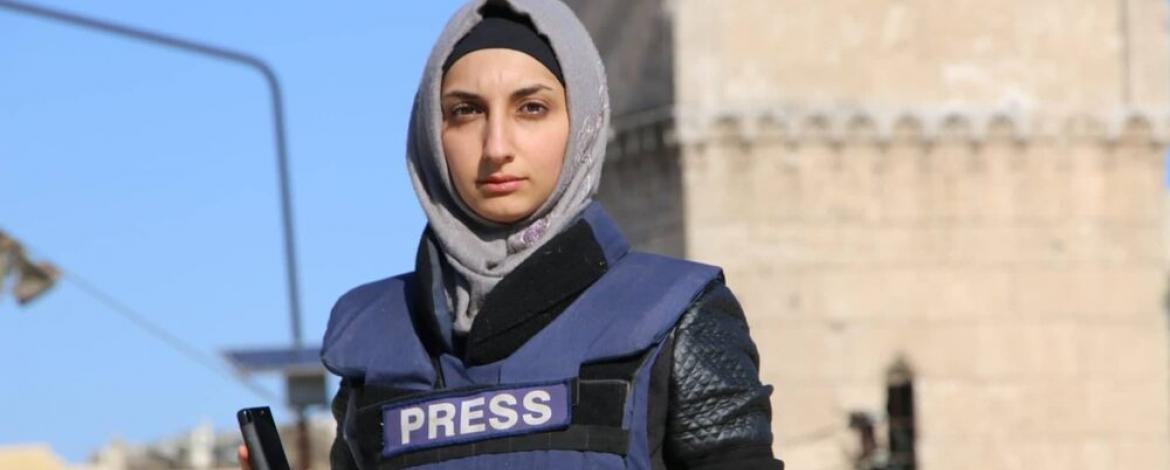Because of her coverage of the ongoing fighting in the last rebel stronghold in the country, a Syrian journalist living in Idleb has been subjected to a campaign of rumors and sexual defamation by various pro-government circles. Reporters Without Borders condemns these insulting and unjustifiable acts under the pretext of media polarization in the conflict.
Since the start of March, dozens of pro-government pages, including an account belonging to a Syrian member of parliament, have reported that independent journalist Mirna al-Hassan was assassinated after being raped by terrorists. This fake news was posted with the caption: “This is the fate of everyone who betrays their country.“ Mirna al-Hassan herself denied this, writing on her own Facebook page: “Every day, a new rumor. I am fine, praise be to God.”
This is not the first time this journalist has been subject to a smear campaign. However, since fighting intensified in Idleb—and especially since the direct military confrontation between Syria and Turkey—the threats, insults and ridicule have escalated against this journalist, who was among the first women to receive widespread media attention in the region after getting involved in covering the situation in Idleb.
Mirna al-Hassan confirmed to Reporters Without Borders that pro-Assad media accounts and figures publish false information about her regularly. One rumor indicated that her father had decided to kill her because she had betrayed her honor by appearing with an exposed face on TV. The journalist appeared in a video from territory held by rebels in Saraqeb, challenging a journalist close to Bashar al-Assad, who has a wide following on Facebook. After the Syrian Arab Army captured the city, a quick response came from another pro-Assad journalist, who appeared on Mar. 2, 2020, in a video clip from the same place, addressing Mirna al-Hassan in terms degrading to the dignity of women.
According to the Syrian Center for Media and Freedom of Expression, there are about 60 journalists in Idleb. Speaking with Reporters Without Borders, some of them confirmed that they face various difficulties in their work. The independent journalist Shadia al-Ata said, “When I’m working and grab a camera, I can see the condemnation in men’s eyes.”
Journalist Jahan Haj Bakri was threatened by Islamic groups for not wearing the hijab. She explained, “I have been forced to wear the veil to gain the trust of people and society on the one hand, and to distance myself from the violence of Islamic groups on the other.”
Syria is ranked 174 out of 180 countries on the world press freedom rankings published by Reporters Without Borders last year.
This article was translated and edited by The Syrian Observer. The Syrian Observer has not verified the content of this story. Responsibility for the information and views set out in this article lies entirely with the author.


